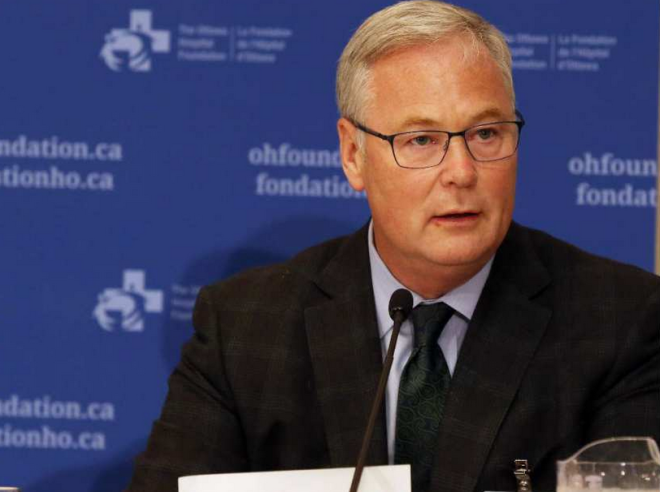'We have to get this right': Hospital looks for options beyond Central Experimental Farm
OTTAWA CITIZEN, By Elizabeth Payne
More than a year after announcing a new Civic hospital would be built on 60 acres of the historic Central Experimental Farm, The Ottawa Hospital now says it is reviewing other options in an effort to have “a hospital and a farm, not a hospital or a farm.”
In a statement to the Citizen Tuesday, chief executive Jack Kitts acknowledged the hospital is reviewing its choice of location for a new super hospital on farm land across from the existing hospital and looking at other potential sites.
“We’ve listened to those in the community who have asked we study and re-confirm that that choice still remains the best option. As a result, we will review it, and conduct the appropriate due diligence to confirm that the recommended site remains the best option. We will also study whether new options might have become available.”
Kitts also confirmed the change in direction for the hospital in an email to a member of the coalition fighting to protect the farm. In the email — supplied to the Citizen on Tuesday — Kitts said the hospital is revisiting alternative sites, including ones at Tunney’s Pasture and at the location of the former Sir John Carling building.
“We are currently in consultation with key stakeholders to identify other sites in the core or close proximity to the city core that may have become available since 2008 and re-evaluating sites in proximity to the core to determine if they will meet the future healthcare needs of our community,” Kitts wrote in an email to Leslie Maitland, the past president of Heritage Ottawa and member of the coalition to protect the Farm.
“We have to get this right,” Kitts wrote.
Kitts added in the email: “We will continue to look at options that will meet the needs of not just our community for the next 100 years. We have to find a solution where we have a hospital and a farm, not a hospital or a farm.”
The hospital, Kitts wrote in the email, is working with the federal government, the province and the city to see whether new options, close to the downtown core, “might be feasible.”
It is the first indication since plans to sever 60 acres of the farm were announced in November 2014 that the historic research fields — that were to be dug up to make way for a new hospital — might be preserved.
That announcement, by Kitts and former Ottawa cabinet minister John Baird, was made with no public consultation or warning. It took almost everyone by surprise — including researchers who had spent much of their careers working on the fields where the hospital was to go. That work included long-term soil experiments that contributed to the 2007 Nobel Peace Prize.
Scientists from around the world wrote to the then-Conservative government to express outrage that “irreplaceable research” would be destroyed to make way for the hospital.
The Experimental Farm is also a national historic site, a designation that carries little clout, however.
News that the hospital is considering alternatives to the Experimental Farm research fields comes as Catherine McKenna, Ottawa MP and federal environment minister in the Liberal government, has suggested it is time to look at other options for a hospital site.
In a statement from her office, McKenna said she had heard concerns about the proposed land transfer.
“I would like to better understand exactly what happened and what the possibilities are moving forward. I know all parties involved in this issue want to find a solution in a timely manner. While I believe we need a hospital in Ottawa Centre, I think we need to look at all possible options.”
Despite that, the hospital appeared to be moving ahead with plans to eventually build a new multibillion-dollar hospital on the Experimental Farm site, although the land transfer, which has been in the works since 2014, is not yet finalized.
The hospital has hired PACE Consulting and tentatively scheduled March 7 as a date for public consultations. Maitland said she was told by the NCC that the consultations would focus on design, “not real estate.” That was also the message she got from PACE Consulting, she said.
The hospital says it originally looked at 12 possible locations based on a dozen criteria, including rapid access to care based on the proximity of the hospital to the centre of the city and public transportation. It eventually selected the Experimental Farm land at Carling and Fisher avenues. A map of the land to be transferred indicates it would include several historic research fields and require farm roads to be moved.
An engineering assessment of the current Civic campus — which opened on Carling Avenue in 1924 — revealed that re-building on the existing site would take 20 years longer and would cost $1 billion more, the hospital says.
